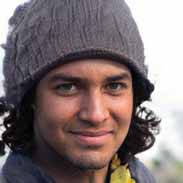World Civilizations Flashcards, test questions and answers
Discover flashcards, test exam answers, and assignments to help you learn more about World Civilizations and other subjects. Don’t miss the chance to use them for more effective college education. Use our database of questions and answers on World Civilizations and get quick solutions for your test.
What is World Civilizations?
World Civilizations is a term used to describe the various cultures and societies that have been around since the beginning of human history. It is an umbrella term for the many different ways in which humans organize themselves, interact with each other, and develop their own unique beliefs and customs. Throughout history, civilizations have come and gone, sometimes leaving behind only traces of their existence.The first world civilization is thought to be Sumerian civilization, which flourished in Mesopotamia from 4000-1700 BCE. This ancient civilization was highly developed, with advanced structures like ziggurats (temple-like towers), complex systems for writing and mathematics, irrigation systems for agriculture, and even a kind of proto-law system of justice. After this period came other great civilizations such as those of Ancient Egypt (3100-30 BCE), Ancient India (c. 1700 – 500 BCE) , Ancient Greece (800 – 300 BCE), Persia (550 – 330 BCE) , Rome (509 – 476 CE), China’s Qin Dynasty or Middle Kingdom (221 – 206 BC) , Islamic Caliphates (622 – 1258 CE), Ottoman Empire(12991923 CE). Each of these civilizations had its own unique characteristics that shaped it into a distinct culture people recognize today as part of world history. The legacy left by these civilizations still impacts us today from language to art to law and serves as a reminder that we are all part of a shared global heritage. World Civilizations teaches us about how different cultures interact with each other over time and space and how each contributes something special to our collective cultural experience. Through studying World Civilizations we can better understand our place in the world today both past and present appreciate diversity within humanity, and ultimately work towards building a better future for all humankind moving forward.
























